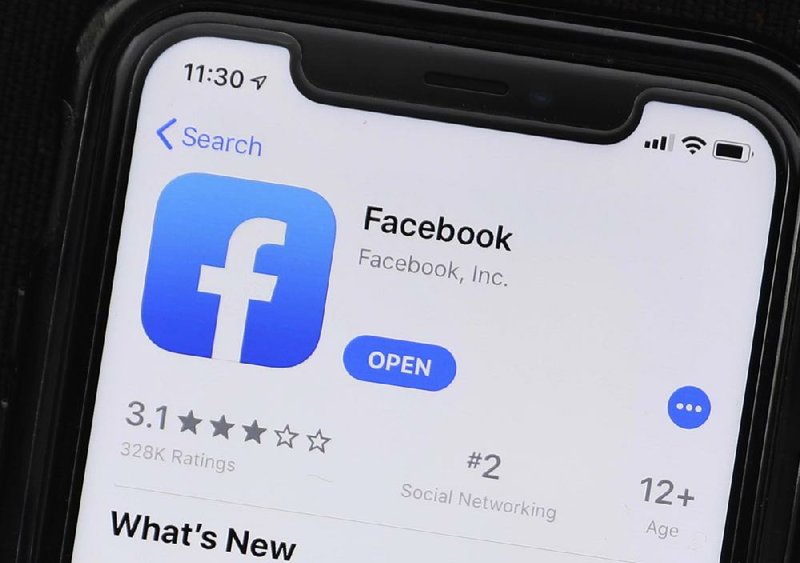SAN FRANCISCO -- Regulators and lawmakers have opened investigations into Facebook's power in social networking. Even one of Facebook's own founders has laid out a case for why the company needs to be split up.
Now the world's biggest social network has started to modify its behavior -- in both pre-emptive and defensive ways -- to deal with those threats.
Late last year, Facebook halted acquisition talks with Houseparty, a video-focused social network in Silicon Valley, for fear of inciting antitrust concerns, according to two people with knowledge of the discussions. Acquiring another social network after Facebook was already such a dominant player in that market was too risky, said the people, who spoke on the condition they not be identified because the discussions were confidential.
Facebook has also begun internal changes that make itself harder to break up. The company has been knitting together the messaging systems of Facebook Messenger, Instagram and WhatsApp and has reorganized the departments so that Facebook is more clearly in charge, said two people briefed on the matter. Executives have also worked on rebranding Instagram and WhatsApp to more prominently associate them with Facebook.
The social network's changes are now prompting a debate about whether a more knitted-together Facebook, WhatsApp and Instagram is just smart business or helps strengthen potential anti-competitive practices. Mark Zuckerberg, Facebook's founder and chief executive, has repeatedly said his company faces competition on all sides and is loath to accept a fragmented version of the social giant. He does not want to lose Instagram and WhatsApp, which are enormous and have the ability to continue fueling Facebook's $56 billion business.
"The big question is, is this a logical business plan?" said Gene Kimmelman, a former antitrust official in President Barack Obama's administration and senior adviser to Public Knowledge, a nonprofit think tank in Washington. "For a social network with enormous growth in photos and messaging, there's probably significant business justification for combining the units."
But Rep. David Cicilline, D-R.I., chairman of the House antitrust subcommittee, said Facebook's moves needed to be scrutinized.
"The combination of Facebook, Instagram and WhatsApp into the single largest communications platform in history is a clear attempt to evade effective antitrust enforcement by making it harder for the company to be broken up," he said. "We need to hit the pause button."
Facebook has pushed back on the idea that the company's moves -- particularly in private messaging -- are in anticipation of a potential breakup.
"Building more ways for people to communicate through our messaging apps has always been about creating benefits for people -- plain and simple," said Stan Chudnovsky, a vice president at Facebook overseeing messaging. "People want to be able to reach as many people as they can with the messaging app they choose."
In Washington, Facebook has its eye particularly on the Federal Trade Commission, the agency that is now investigating it over complaints of anti-competitive practices, said two of the people with knowledge of the social network.
The FTC became interested in looking at Facebook and its power last year when the agency's investigators were separately examining the company for privacy violations, said two people close to the process.
Facebook's long string of acquisitions -- it bought Instagram in 2012 and WhatsApp in 2014, among many others -- have been targeted by academics and policymakers for reducing competition. They have argued that the company engaged in "serial defensive acquisitions" to protect its dominant position in social networking.
This year, the FTC sought clearance from the Justice Department to open an antitrust investigation into potentially anti-competitive behavior at Facebook, the people close to the process said. The FTC was cleared to do so, and notified Facebook in June.
Around the time that the FTC activity on Facebook ramped up, the company also stepped back on at least one potential acquisition.
Last December, Facebook executives were in advanced discussions to buy Houseparty, a social networking app that lets multiple people video chat on their mobile phones at once, said two people with knowledge of the talks. Houseparty, founded in 2016 by a Silicon Valley entrepreneur, Ben Rubin, was especially popular with audiences under the age of 24. Facebook, whose members are getting older, has coveted younger users.
But weeks into the discussions, Facebook's corporate development team killed the talks with Houseparty, the people said. Houseparty's executives were told that a deal would draw unwelcome federal government scrutiny to Facebook, they said. Houseparty was later purchased by Epic Games, the makers of the video game Fortnite.
Facebook's changes that appear to make a breakup of its apps more difficult began more than a year ago. Zuckerberg focused on combining the underlying infrastructure of WhatsApp, Instagram and Facebook Messenger. The project, called "interoperability," requires years of deeply technical and difficult engineering work.
The aim, in part, was to create less of a hodgepodge of companies and more of a unified network, said people briefed on the strategy. Publicly, Zuckerberg has said the initiative will help build a more "private" version of Facebook so customers can "communicate across networks easily and securely," as users flock to messaging services en masse. People will also get a better and more streamlined user experience, he has said. Zuckerberg has added that a unified messaging system would better lend itself to moneymaking efforts on WhatsApp, which today brings in little revenue.
But the idea of "interoperability" was a departure for Facebook. Though Facebook and Instagram have long shared much of the same infrastructure, its different messaging products generally operated independently.
Business on 08/13/2019
